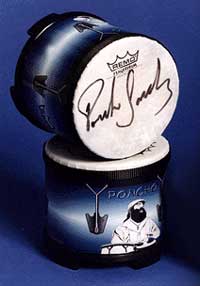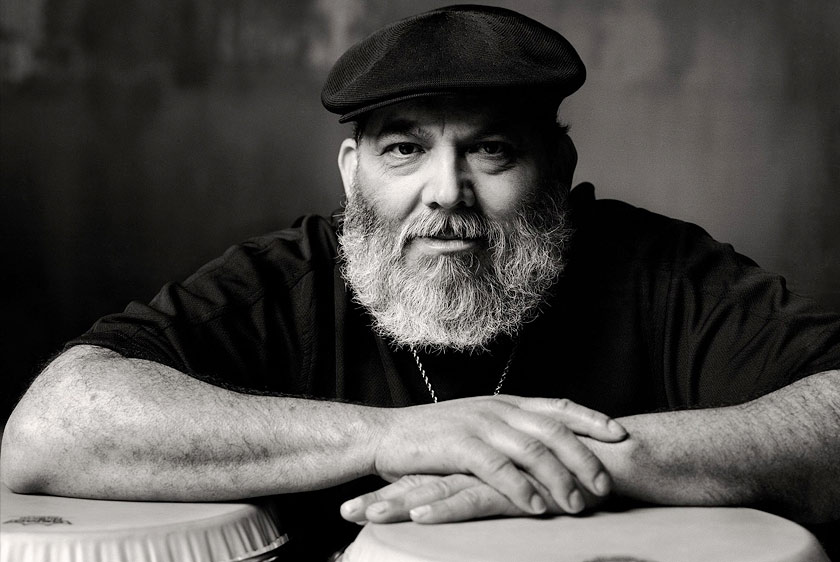
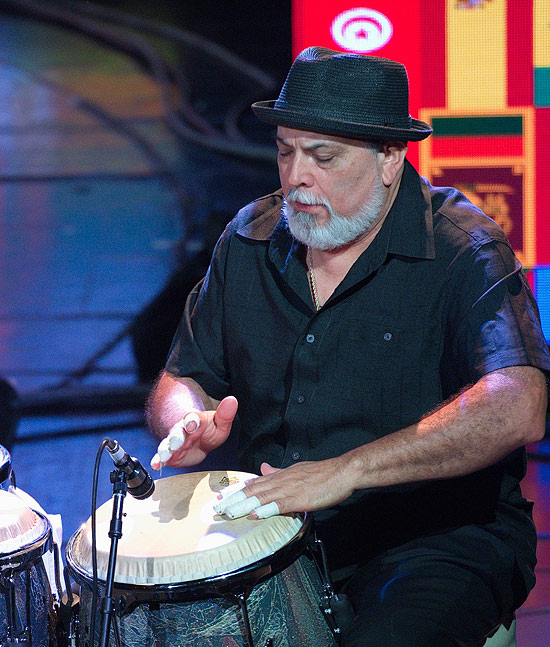 © Goffredo Loertscher
© Goffredo Loertscher| Poncho Sanchez |
|
Poncho Sanchez has long qualified as one of the hardest-working men in Latin jazz. Born in Laredo, Texas as the youngest of 11 children, he grew up in Norwalk, California (where he still lives) and remembers hearing Afro-Cuban music while growing up. "As a kid in third or fourth grade, I would hear my sisters dancing while listening to Machito, Tito Puente, Cal Tjader and various bands from Cuba while my brothers listened to doo-wop music and early rhythm and blues." While in sixth grade, Sanchez bought a fifty- cent guitar in hopes of joining an r&b band that rehearsed across the street from his home. Although he practiced quite a bit, when he showed up for an audition, he knew immediately that he did not stand a chance. "But it turned out that they needed a singer and, although I had never sung, I gave it a try and became the lead vocalist in that band for five years. Then when I was in high school, the first chance I had to get behind a set of conga drums, I hit them and it felt quite natural." Soon Sanchez had saved up money from his singing jobs and was practicing congas as much as possible in his garage, playing to Machito, Tito Puente and Cal Tjader records.
Sanchez's big break occurred in 1975 when, after a period of struggle, he had an opportunity to play with his idol, vibraphonist Cal Tjader. "I found out later that Cal's conga player was planning on leaving soon and he was letting a lot of people sit in with him. I played one number with Cal, he asked if I could play the rest of the set with him and a week later he asked if I could join him for a week, starting New Year's Eve at the Coconut Grove opposite Carmen McRae!" Sanchez would be a major part of Tjader's band for the next seven years, an association that lasted until the vibraphonist's death. Poncho Sanchez first formed his own group in 1980, leading his ensemble during Tjader's vacation periods and recording two albums for Discovery. Shortly before his death, Tjader recommended to Concord founder Carl Jefferson that he sign Sanchez to his Concord Picante label (a subsidiary originally started to document Tjader's music). 18 recordings, a Grammy Award (for 1999's Latin Soul) and a countless number of performances around the world (at venues ranging from concert halls and nightclubs to free festivals) have resulted in the years since. "My band and I really do love Latin jazz. We played this music before it was popular and I think we've played a part in helping it to become popular again. Our main goal is always to keep Latin jazz alive, growing and moving, while being authentic to the music that we love. I'm proud to say that we have stuck to the basic fundamentals and the roots which are very important to us. And, as I always say in clinics, this music is not just for Latino people. It was born in the United States and it is American music. It is for everybody!" Soul of the Conga Poncho's latest release on Concord Records features Sanchez's three-horn three-percussion octet who have been joined on past recordings by such guests as Tito Puente, Freddie Hubbard, Eddie Harris, Dianne Reeves, the Jazz Crusaders and Mongo Santamaria.Soul Of The Conga features the great organist Joey DeFrancesco as part of Sanchez's band on seven numbers. The first time that Sanchez worked with an organist since he started leading his band was a few months before this recording took place. "Joey DeFrancesco was our special guest for a full week at Yoshi's" remembers Sanchez. "He adjusted himself quickly to our Latin groove and he is such a fine musician that it was easy to play with him." DeFrancesco, whose rise to fame in the 1990s helped the Hammond B-3 organ to make a major comeback, clearly inspires Sanchez and his sidemen with his enthusiasm and remarkable technique. The organist is not the only guest on Soul Of The Conga. "Stella By Starlight" features Terence Blanchard, one of the top trumpeters in jazz. "We appeared at the same festivals a few times and always liked each other's music but had never played together before." In addition, Sanchez has a rare opportunity to explore the early roots of Cuban music during the four numbers in which he interacts with the Five Ortiz Brothers. The well-rounded and continually intriguing program begins with DeFranco in the spotlight during the funky blues "Joseito." Tenor-saxophonist Scott Martin also has a strong spot while trumpeter Sal Cracchiolo (who has been with the band since near the beginning) and trombonist Francisco Torres (who at two years, is the newest member of the Sanchez family) have brief tradeoffs with the percussion section. "Oye Lo" features some happy group singing and a groove worthy of Sanchez's late boss Cal Tjader; Cracchiolo takes solo honors. Next is Poncho Sanchez's first meeting on this release with the five Ortiz Brothers. The siblings had befriended Sanchez years ago when they were kids who were anxious to see his band play. Since then they have become professional musicians and formed Son Mayor, a 14-piece salsa band that has become popular in Los Angeles. "Not many people know about the changui style of music from Oriente, Cuba that they play which uses bongos rather than congas and features the tres (a six-string acoustic guitar)." The traditional changui sound, which can be heard on recordings of the 1920s and 30s, is revived creatively by the Ortiz Brothers. Sanchez and Sal Cracchiolo (whose trumpet playing on this selection is in the style of veteran Chocolate Armenteros) sound quite at home with the Ortiz Brothers on "Venga A Bailar Bailadores." "Moon Pie" with DeFrancesco is in the style of classic soul jazz of the 1960s. The catchy "Haitian Lady" finds the solos of DeFrancesco and Cracchiolo being pushed by the exciting rhythmic patterns of pianist David Torrez. Sanchez, a superior singer, has a vocal feature on the romantic "Cosas Del Alma," a number that is perfect for dancing couples. "Nengon" features the vintage and spirited group singing and acoustic instruments of the Ortiz Brothers along with Sanchez and pianist Torres. Alphonse Mouzon's "Virtue" (which has a groove a bit similar to that of "Afro Blue") and a wonderfully Latinized rendition of Henry Mancini's "Days Of Wine And Roses" gives Sanchez's regular band opportunities to stretch out with DeFrancesco. The Ortiz Brothers return for "Fania Fungue" which has some particularly infectious group singing. Terence Blanchard's ballad feature on "Stella By Starlight" is quite heartfelt and beautiful, making one look forward to future collaborations by the trumpeter with the perfectly complementary Sanchez band. "Bodacious Q" finds Sanchez (and particularly pianist David Torres) playing in a Ramsey Lewis groove which, with its handclapping, is reminiscent of a Lewis live date from the 1960s. Tito Rodriguez's "Asi Asi" looks back to the classic Cuban dance bands of the 1950s; among the group singers are Joey DeFrancesco himself. The consistently appealing Soul Of The Conga concludes with the chanting and percussion of the Ortiz Brothers and Sanchez on "Rumba De Po-Tiz," which in its "Po-Tiz" title was spontaneously named after them. |
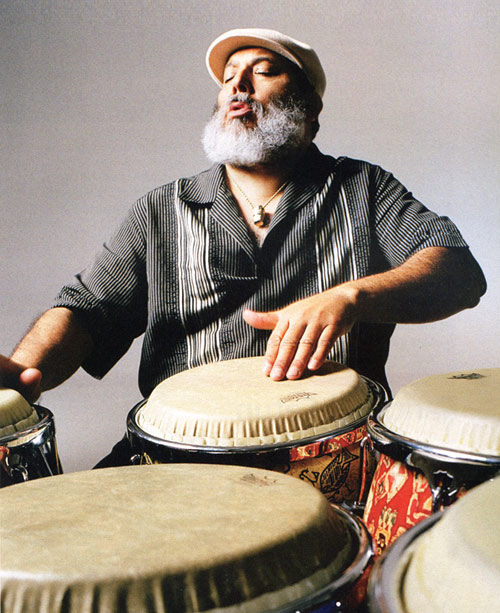
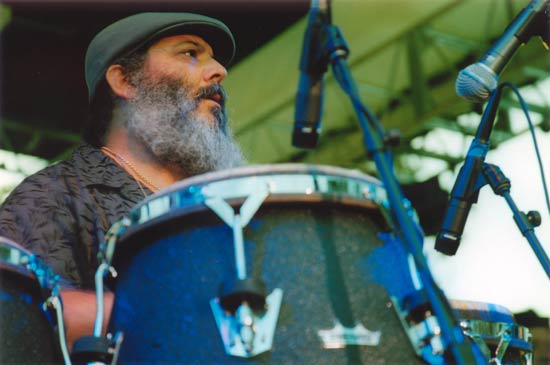 © Shoji Ichikawa
© Shoji Ichikawa
|
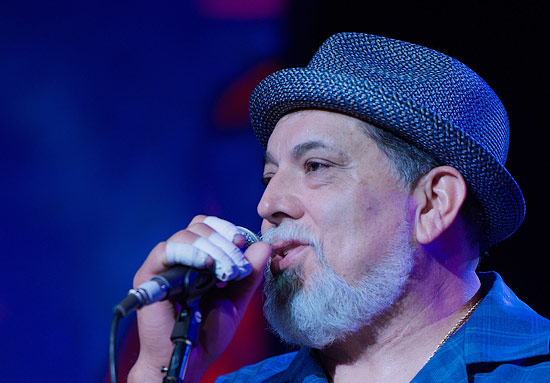 © Goffredo Loertscher
© Goffredo Loertscher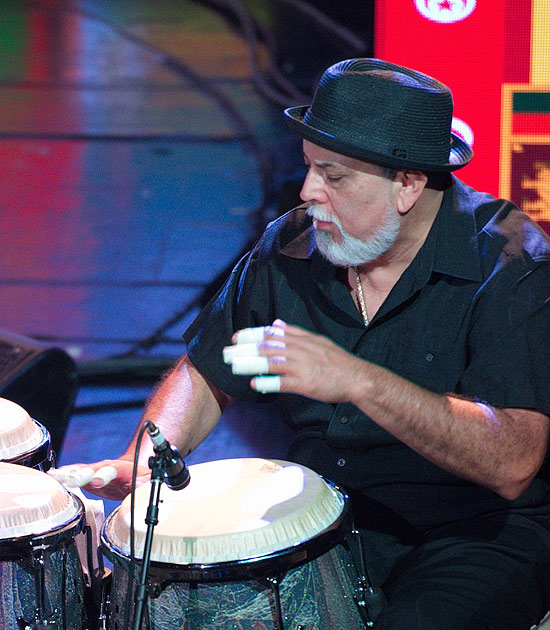 © Goffredo Loertscher
© Goffredo Loertscher
|
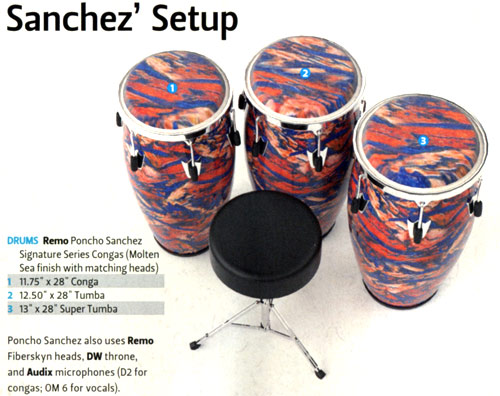
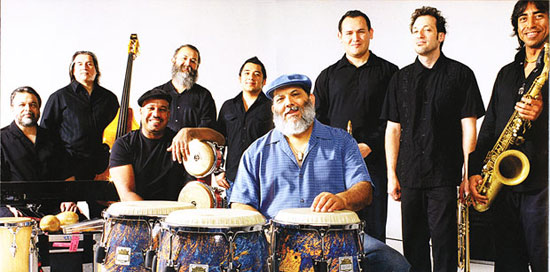
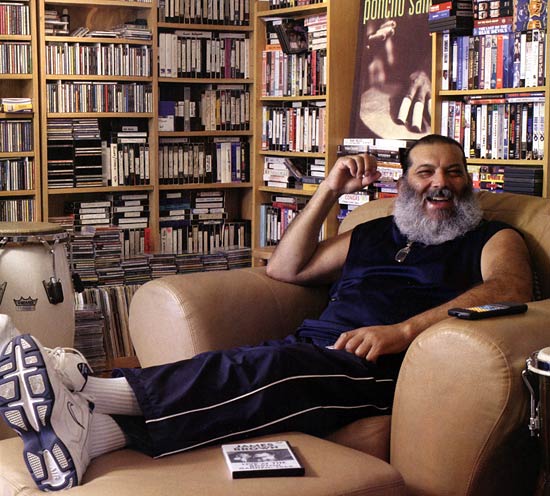
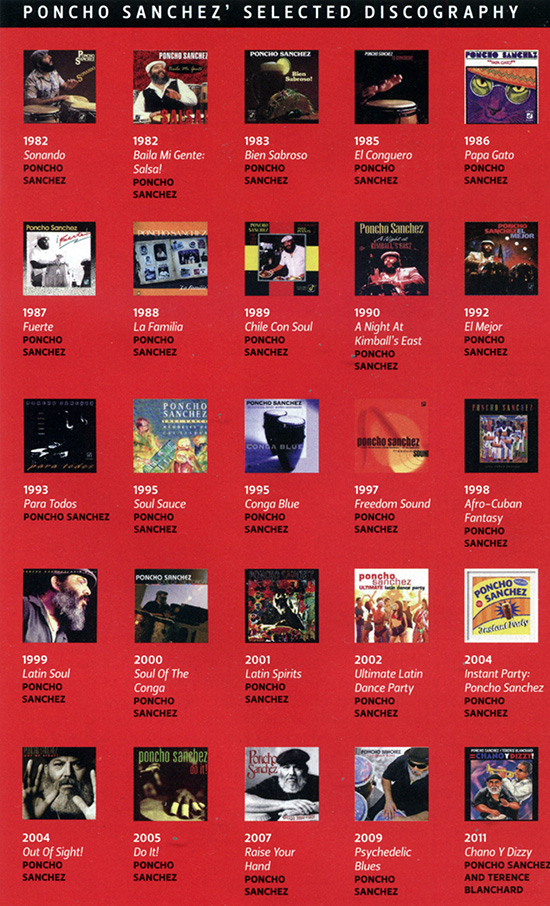
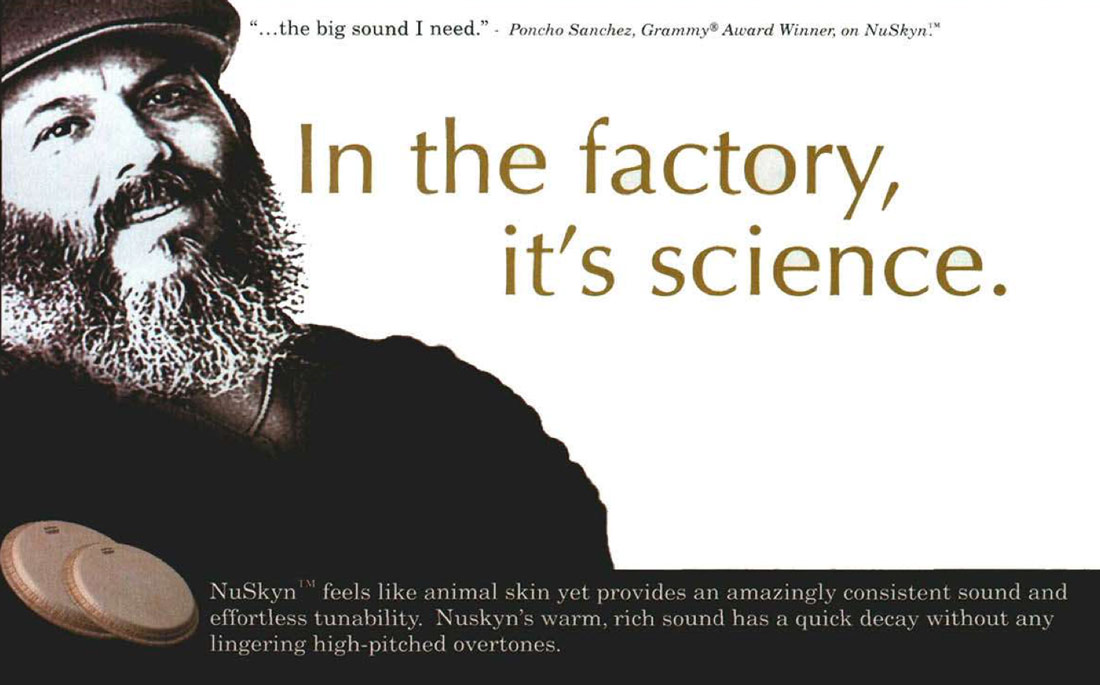
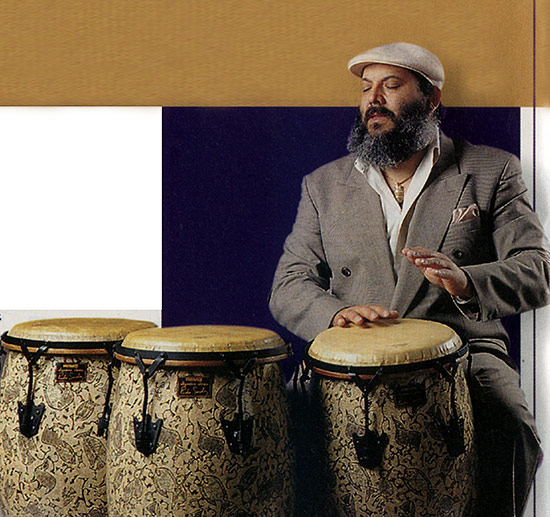
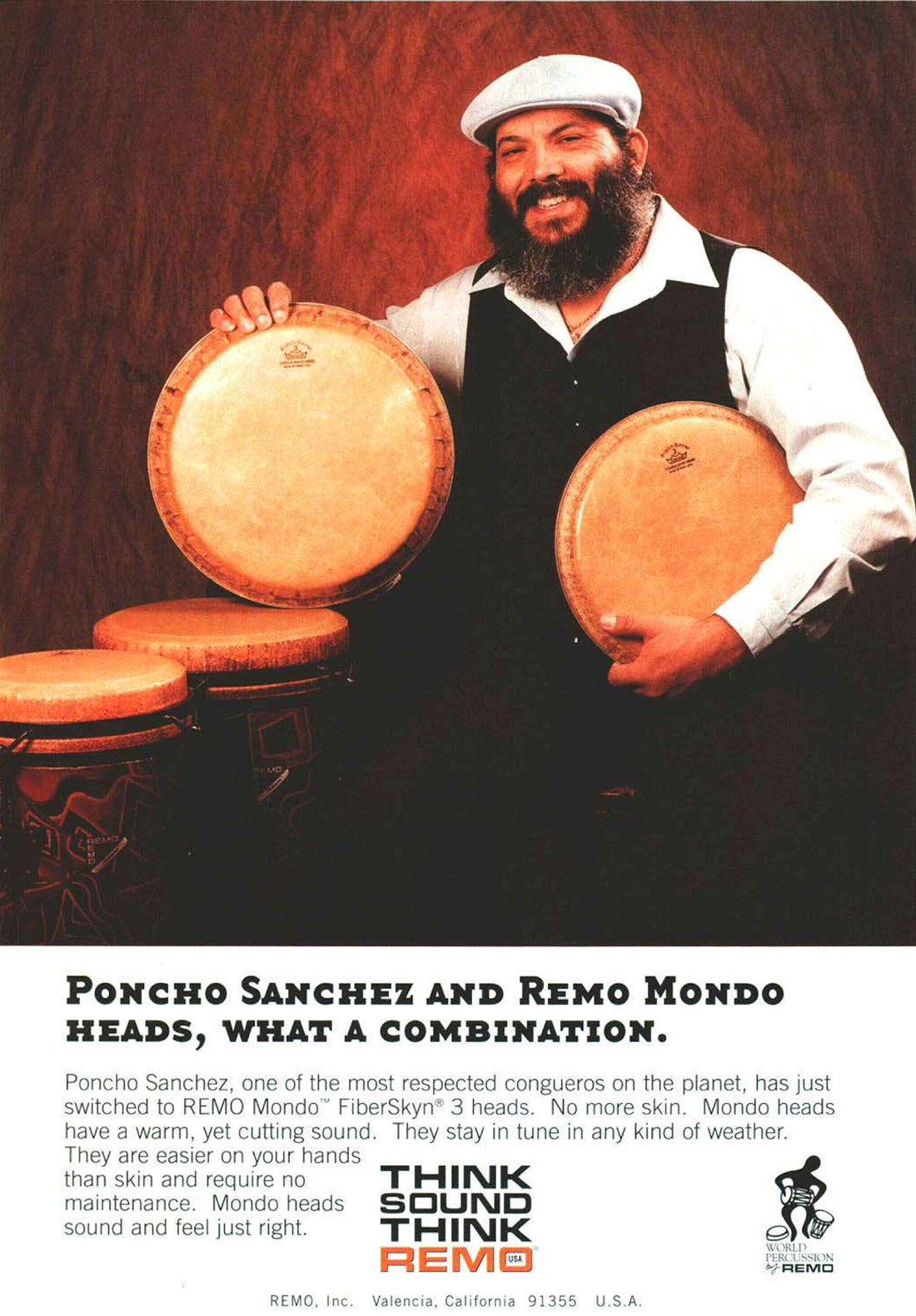
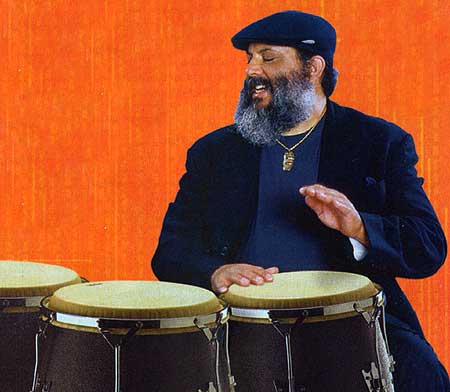
|
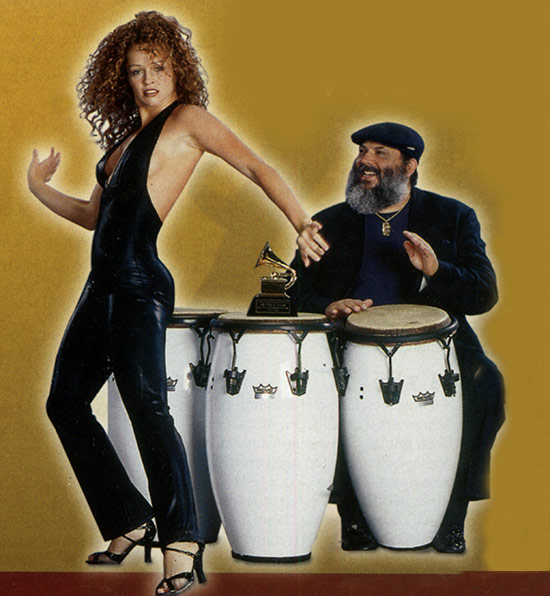
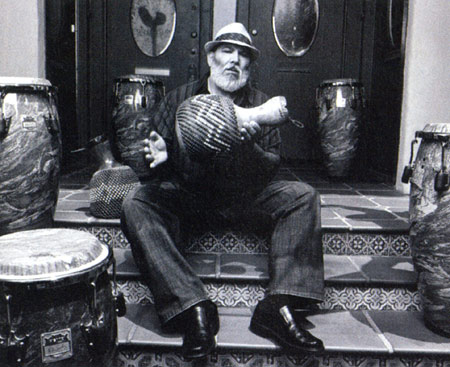
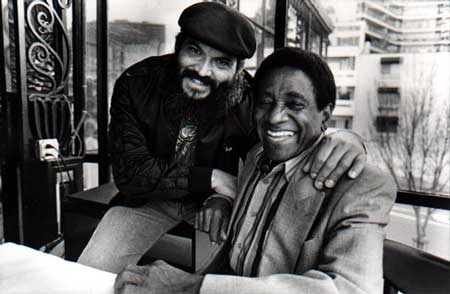 Poncho & Mongo Santamaria
Poncho & Mongo Santamaria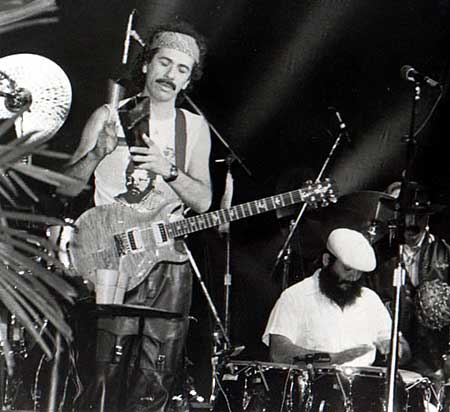
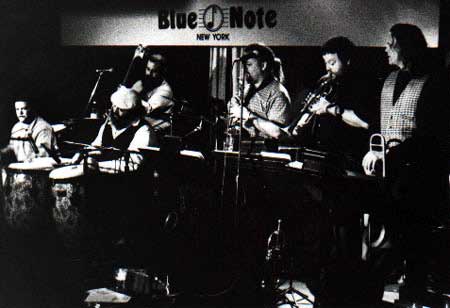
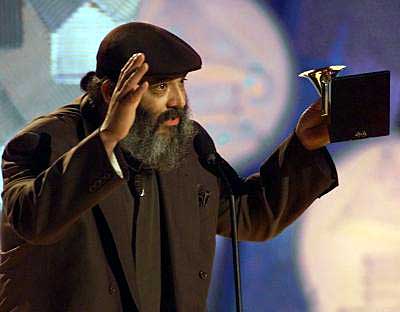 Grammy Award
Grammy Award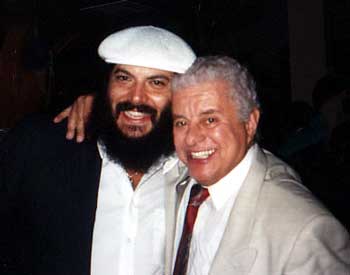 Poncho & Tito Puente
Poncho & Tito Puente
|
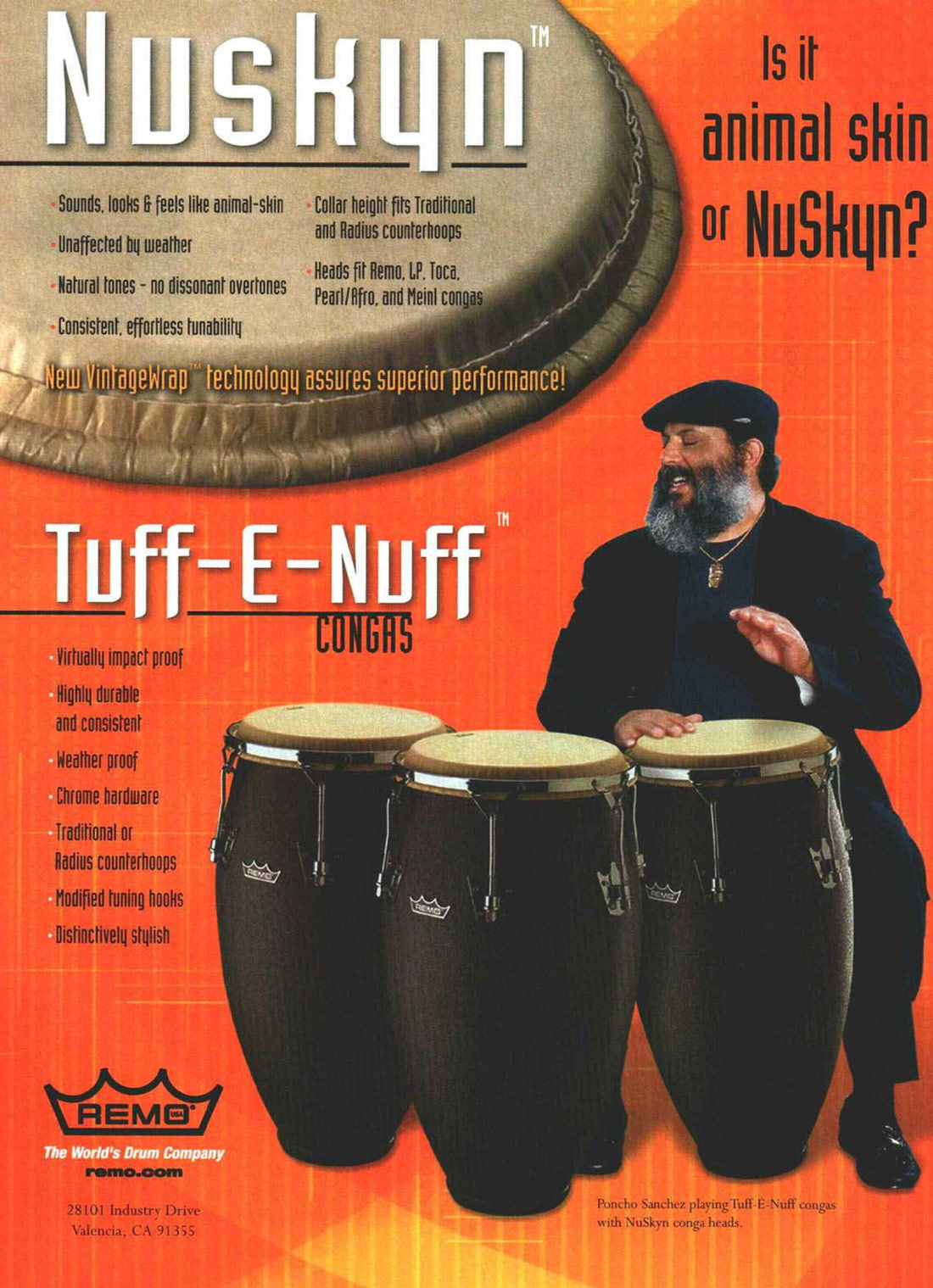
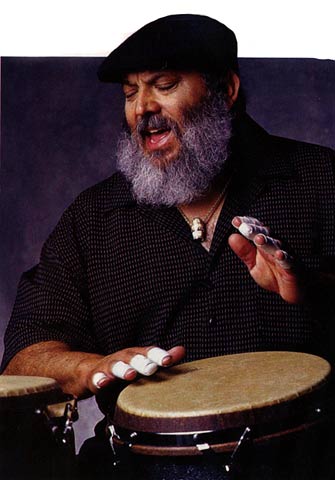
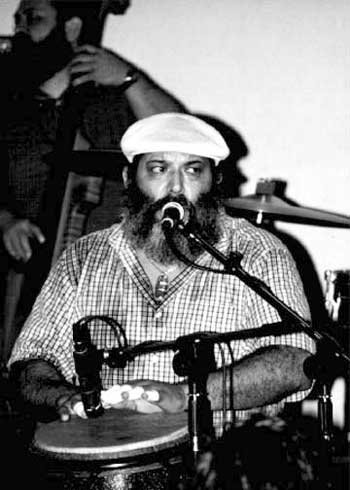
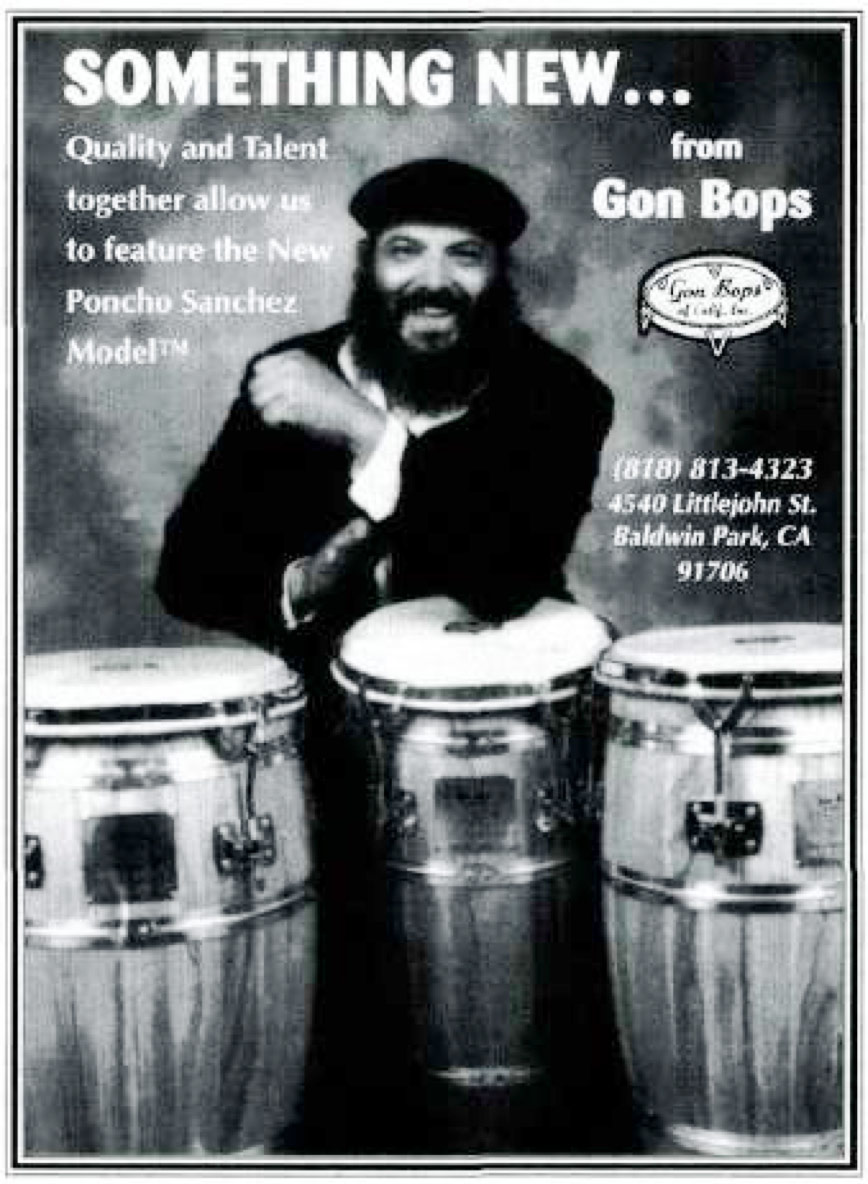
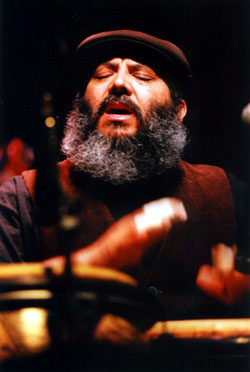 thanks for your visit!
thanks for your visit!
CLICK:
the 500 Top Drummers:
the 500 Top Drummers:






